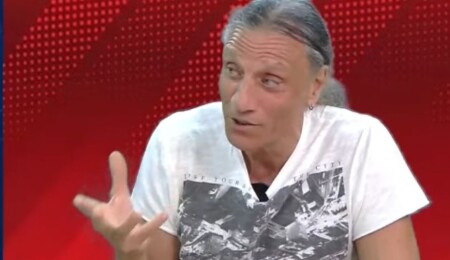Denizkan: Presidential Elections Have Lost Their Value, Campaigns No Longer Convincing

Journalist Harun Denizkan has argued that the presidential elections in Cyprus have lost their significance, claiming that candidates focus on domestic politics while the Cyprus issue is being ignored.

Speaking on Gündem, a programme hosted by Ulaş Barış on Kıbrıs Postası TV, Denizkan also offered sharp criticism of Turkey’s role on the island and the various proposed solution models.
Denizkan said that presidential elections in Cyprus have become “devalued” and that political campaigns now fail to convince the public. “The presidential elections have lost their value, and the propaganda no longer seems credible,” he said, adding that the atmosphere feels more like a parliamentary election campaign, with rhetoric focused entirely on internal political issues. He claimed that even potential future candidates are trying to draw attention to themselves, calling such behaviour inappropriate.
According to Denizkan, the Cyprus issue is being completely left out of political debate due to Turkey’s influence on the island. Recalling that before the 2000s the country had a “ceasefire atmosphere” dominated by Rauf Denktaş and the military, he argued that Turkey’s ruling Justice and Development Party (AKP) fundamentally altered Turkish Cypriot politics after coming to power in 2002.
Denizkan claimed that the AKP created a major rupture in the island’s political landscape and that the federation process represented “wasted years.” He suggested that the current two-state approach effectively seeks to create “two states within the north,” serving internal political structures rather than a genuine international recognition effort.
He went on to say that during the Annan Plan period in the early 2000s, he personally believed a solution was possible under AKP’s leadership, but later came to view the process as a “game of delay.” He argued that the “no” vote in the 2004 referendum cost Cyprus 20 years of progress.
“After Denktaş, every president may have been different in the streets, but at the negotiating table, they all became Denktaş,” Denizkan remarked, arguing that Turkey’s refusal to compromise on security and guarantees has repeatedly stalled negotiations. He said that while a federation could theoretically be a fair system, Greek Cypriots would never accept a continued Turkish military presence on the island, and that politicians deliberately avoid discussing this central issue.
Denizkan referenced Greek Cypriot sentiments expressed during the October 1 celebrations, noting that “every Greek Cypriot interviewed said, ‘Let Turkey withdraw from the island and Cyprus will reunite.’” He said the absence of discussions on security and guarantees has cost Cyprus half a century.
Finally, Denizkan argued that the two-state model most closely resembles a feasible solution but only in name. “Turkey’s vision of two states does not mean recognition of the TRNC,” he said, claiming that Ankara’s goal is to establish a framework that would allow a formal defence cooperation agreement with Northern Cyprus. He added that President Tatar was “brought in” to replace Mustafa Akıncı because the latter did not align with this model, but that Tatar’s rhetoric has led much of society to reject it.


Comments
Attention!
Sending all kinds of financial, legal, criminal, administrative responsibility content arising from illegal, threatening, disturbing, insulting and abusive, humiliating, humiliating, vulgar, obscene, immoral, damaging personal rights or similar content. It belongs to the Member / Members.